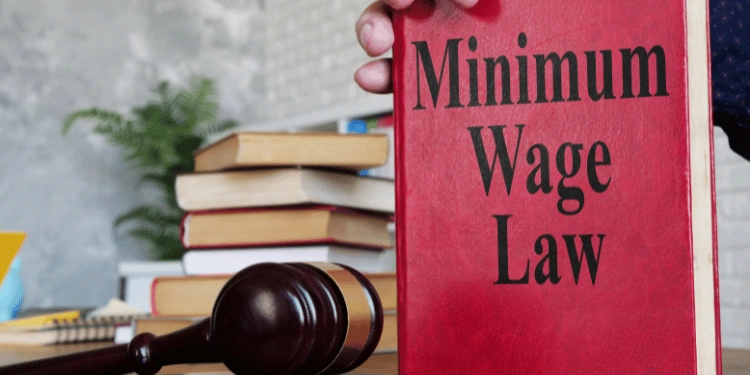Minimum Wage Enforcement in Crisis: Just 21 Companies Prosecuted in 15 Years
Despite a legal minimum wage being in place for over two decades in the United Kingdom, enforcement appears alarmingly lax.
According to newly released government figures, only 21 companies have been prosecuted between 2008 and 2023 for failing to pay staff the minimum wage — a staggering statistic that has ignited calls for urgent reform.
With growing demands for stronger labour protections, campaigners, economists, and members of the House of Lords are urging Prime Minister Keir Starmer to implement a more effective enforcement framework.
Critics argue that ineffective regulation emboldens rogue employers, undermines the labour market, and contributes to rising welfare costs.
This article explores the underlying reasons behind the startlingly low number of prosecutions, what it means for workers and the economy, and what steps might be needed to ensure all employees in the UK are paid what they are legally owed.
A Legal Right, But Not a Reality for All
The National Minimum Wage and National Living Wage are supposed to guarantee a baseline of fairness in the labour market.
Whether someone works in a supermarket, care home, restaurant, or warehouse, the law mandates that they should be paid at least the statutory hourly rate.
Yet, data from the Department for Business and Trade reveals a bleak picture. In 15 years, only 21 successful criminal prosecutions have been carried out against companies failing to meet this fundamental obligation.
One additional employer accepted a formal caution.
This suggests that, in practice, the UK’s enforcement of minimum wage laws is virtually toothless — with employers facing little real threat of criminal sanction.

Low Prosecution, High Offending: The Gap Between Law and Action
While criminal prosecutions are rare, non-compliance with minimum wage laws is widespread. Just last year alone:
-
A total of 524 companies were exposed publicly for failing to pay workers the correct amount.
-
More than 172,000 workers were underpaid.
-
Employers were forced to repay nearly £16 million in arrears.
-
Penalties were issued — though often considered financially minor compared to the damage caused.
These numbers starkly contrast the mere 21 prosecutions since 2008.
As a result, there are growing concerns that enforcement is not keeping pace with reality — and that low accountability is encouraging bad behaviour.
Table: Minimum Wage Enforcement Snapshot (2008–2023)
| Category | Figure |
|---|---|
| Years covered | 2008–2023 |
| Companies prosecuted | 21 |
| Additional cautions issued | 1 |
| Companies named for underpayment (2023) | 524 |
| Workers underpaid (2023) | 172,000+ |
| Total arrears repaid (2023) | £15.7 million |
| Additional penalties (2023) | Financial penalties (undisclosed totals) |
Criticism from Experts and Legislators
Labour peer and Emeritus Professor of Accounting at the University of Essex, Lord Prem Sikka, has consistently spoken out against the existing strategy.
Speaking in response to the newly released figures, he labelled the penalties and enforcement mechanisms as “puny” and argued that the failure to prosecute more employers sends a dangerous signal.
“Our enforcement is incredibly weak,” he told The Independent. “Every year, hundreds of thousands of workers are denied the minimum wage.”
Lord Sikka added that enforcement agencies like HMRC lack the resources necessary to investigate the volume of potential violations.
In his view, the system effectively incentivises non-compliance, allowing companies to “game the system” with little risk of serious repercussion.
The Role of the Government: Are Current Policies Working?
Ministers have defended the current system, stating that criminal prosecution is reserved for the most egregious cases, such as those involving deliberate or reckless underpayment, refusal to cooperate with regulators, or persistent breaches.
They argue that civil sanctions and naming schemes are sufficient for most cases.
However, critics say this “light-touch” approach has failed to deter misconduct.
“If companies know they won’t be taken to court, they may factor in the cost of a fine as a business expense,” said one employment law solicitor. “That’s not regulation — it’s a green light.”
In a climate where economic inequality and cost-of-living concerns dominate public discourse, the government’s approach to enforcement may soon become a political liability.
Economic Consequences: More Than Just Unpaid Wages
The impact of underpaying workers extends well beyond individual hardship.
Economists warn that failure to uphold wage laws has wider implications for:
1. Economic Growth
When workers are underpaid, they spend less, reducing overall consumer demand and slowing down the economy.
2. Welfare Dependency
Low wages often force individuals to rely on state benefits to cover basic needs, inflating the welfare bill and placing greater strain on taxpayers.
3. Market Distortion
Companies that comply with wage laws are effectively penalised for doing so, while those that flout the rules can undercut competitors and exploit labour.
Lord Sikka argues that proper enforcement would both stimulate growth and reduce the welfare budget, stating:
“If people are earning more, they claim less. It’s simple economics.”
Workers’ Rights Organisations Call for Reform
Unions and labour rights advocates have long called for a dramatic increase in enforcement resources.
Proposals include:
-
Increasing funding for HMRC’s minimum wage enforcement unit
-
Expanding the number of inspectors
-
Lowering the threshold for criminal prosecution
-
Introducing stronger penalties, including director-level accountability
-
Publicly disclosing offending companies earlier in the process
Some campaigners also suggest linking penalties to company size or executive pay, ensuring that larger firms face more significant consequences proportionate to their operations.
Public Attitudes and Political Pressures
In recent years, concerns over workplace fairness have sparked growing outspokenness among the British population.
With the cost of living continuing to rise, ensuring that workers receive at least the legal minimum is viewed not just as a labour issue, but as a moral imperative.
New polling shows strong support for cracking down on wage theft, with the majority of respondents believing that repeat offenders should face criminal charges, and that minimum wage breaches should be treated as seriously as tax evasion or fraud.
For Prime Minister Keir Starmer, who has positioned Labour as a party of both economic competence and social fairness, this could become a defining issue.
A tougher stance on enforcement would likely prove popular across party lines, particularly among working-class voters who have historically been most affected by underpayment.
Conclusion: A System in Need of Reform
The revelation that just 21 companies have faced criminal prosecution in 15 years for minimum wage violations is not merely a statistical anomaly — it is a reflection of a broken enforcement system.
While thousands of workers go underpaid every year, the chances of their employer facing serious consequences remain astonishingly low.
Without meaningful reform — including greater funding, stronger penalties, and a willingness to prosecute — the UK risks entrenching a culture where labour laws are optional for those with deep enough pockets.
The minimum wage was introduced as a safety net.
It was meant to guarantee dignity, fairness, and a basic standard of living. It’s time the enforcement of that law was taken as seriously as the promises behind it.






